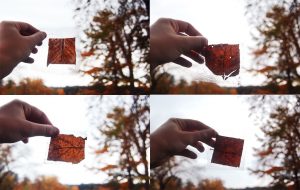Each fall, students in the Studio Art Foundations class gather to create art inspired and informed by experiences at MacLeish Field Station. The following is a sampling of their work.
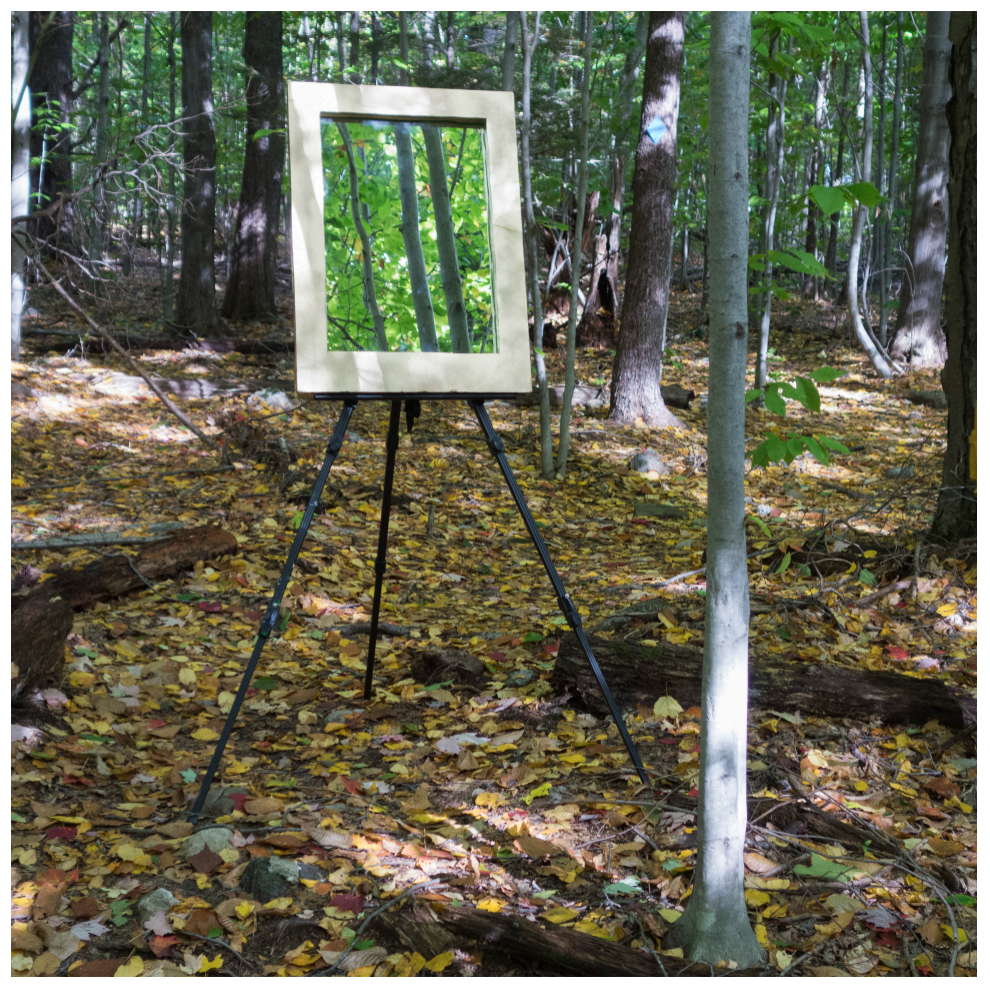
“The mirror’s reflection is a live representation of the site where it stands. The field station functions as a sample of the surrounding climate and environment. It serves as a space where many different types of data can be taken. Similarly, the view in the mirror serves as a sample image of the tree. This image is one that captures the tree’s division, a feature that is not noticeable initially when standing on the trail. As one changes perspective by moving around the piece, the sample image of the tree, of the field station, and of the environment is in flux perpetually.”
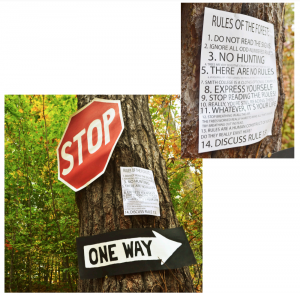
Diedre Anna Lightman
“How absurd it looks to have street signs in the woods. This idea struck me when I saw Smith \ College signs adorning the trees at the field station. They didn’t belong. Though Smith owns the property, it is very much removed from mainstream society and sharply contrasts with the liberal noise of campus life and downtown Northampton. It looked bizarre and inappropriate to see rules posted in the middle of the wilderness, so I exacerbated that effect. The street signs were made approximately to scale according to traffic regulations and the set of rules directly mocks those that are already posted.”
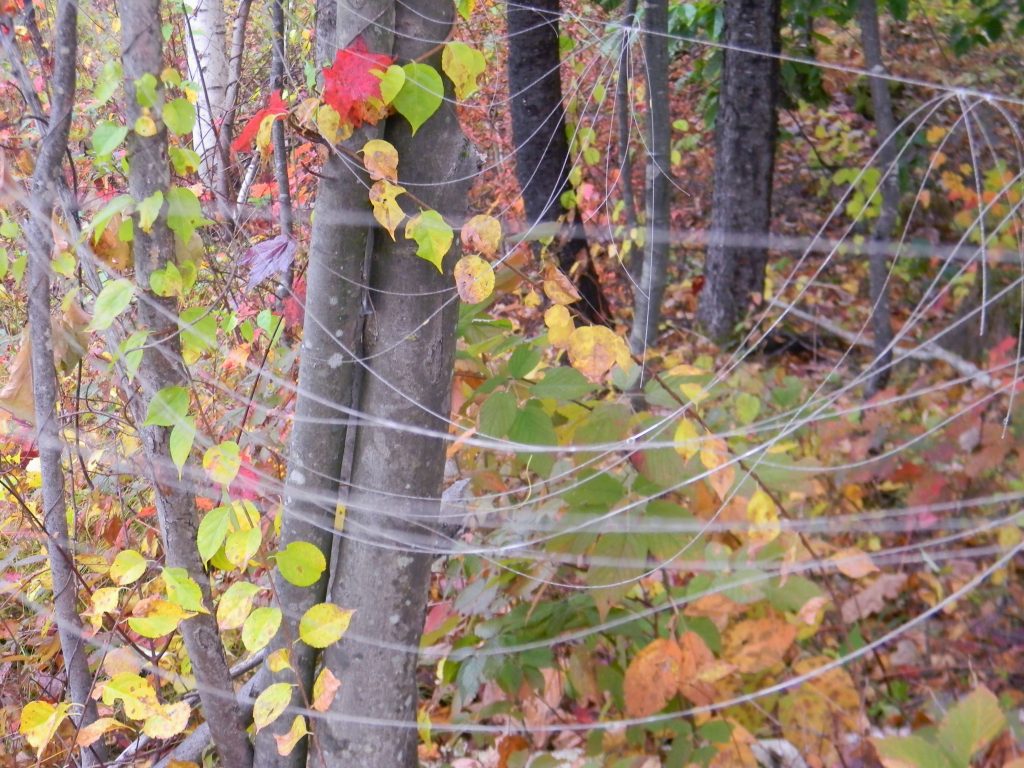
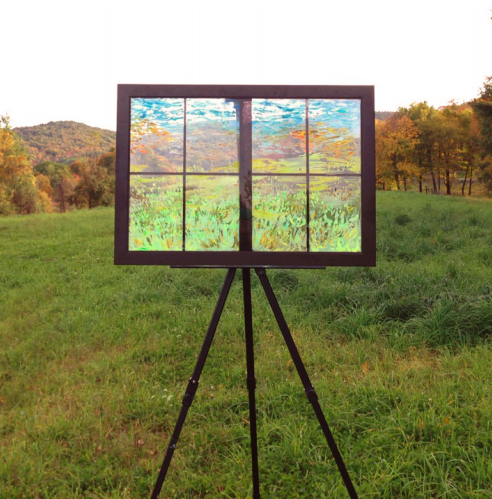
Framed Perception
“Just like a framed painting, a window frames fleeting moments that flash before our eyes. While looking through a window, we are often unaware of the barrier it creates on our perception beyond the glass panels. By painting directly on top of the glass, I hoped to capture the characteristics of a painting as well as a viewing device for the landscape beyond. While it is a framed painting, its resemblance to a window triggers us to focus what lies beyond the brushstrokes that now almost hinders clearer observation of the landscape. The painted glass panel serves more like a filter or lens we look through to see a new landscape. The landscape hides behind the paint, but the it also fills in the gaps of the painting, presenting a new landscape from where a viewer stands.”
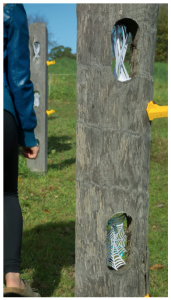
“I observed that this fence had regular holes in the fence posts that had become obsolete in the process of repurposing, and therefore began to imagine what other uses they might be put to. I created sketch-like, silhouette representations of these possible future contents. Upon further observation, I realized that some of the holes were already occupied, and factored that into my presentation. I put a fabricated leaf in the lower hole; a paper spider web in the middle, and a plant-like figure in the top, in order of what I thought might appear first. The spider web on the second pole has the word “Home” in bright teal across it, and the other objects are decorated like a person might decorate and personalize a home.”
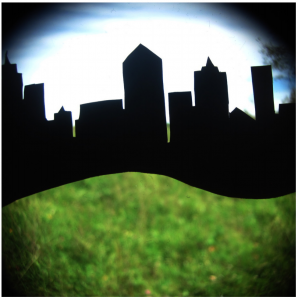
Quincy Dean-Slobod
“The image displayed is what can be viewed when looking through the piece. The physical shape of the piece is a black cube; a wire frame with walls of black fabric and paper. The wall that faces the viewer has a small hole through which the viewer is expected to look. The wall seen in the image is made up of clear plastic wrap with a black city skyline across it. The city skyline covers the natural horizon of the site in which the piece is placed. It immerses the viewer in an alternate reality which is meant to emphasize the juxtaposition of a city skyline becoming prominent within a natural environment.”
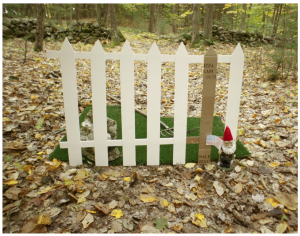
Sri Wahyuni
“I was inspired by the obsession America seem to have with lawns. As a foreigner, I found the idea of controlled nature hilarious and I aimed to make something as ridiculous. I found several symbolism of America, both gathered from the point of view of foreigners and other Americans. The white fence is crooked and fake, mirroring and contrasting the natural ‘fence’ that the rocks makes up behind it.”
